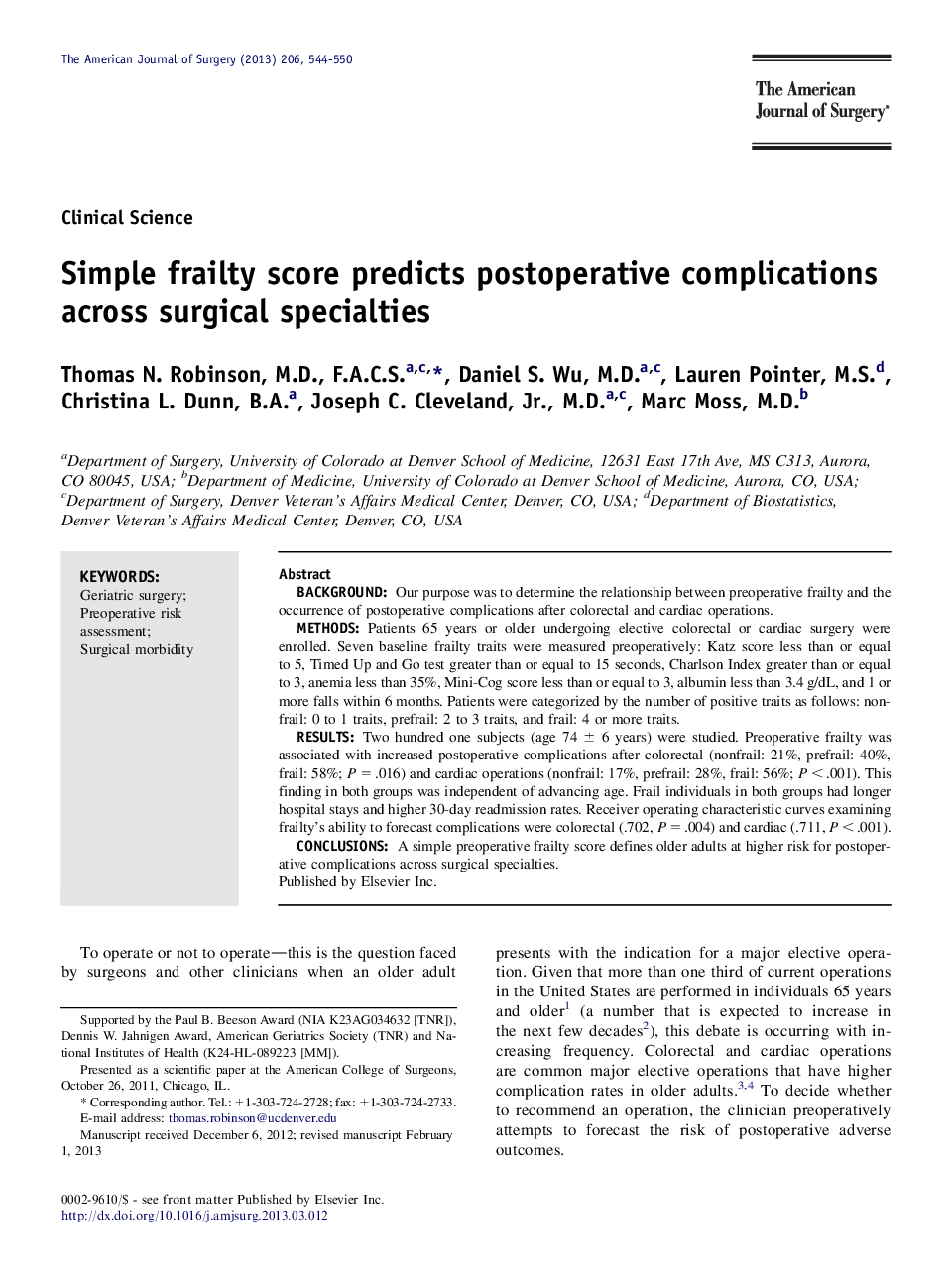| Article ID | Journal | Published Year | Pages | File Type |
|---|---|---|---|---|
| 4279026 | The American Journal of Surgery | 2013 | 7 Pages |
BackgroundOur purpose was to determine the relationship between preoperative frailty and the occurrence of postoperative complications after colorectal and cardiac operations.MethodsPatients 65 years or older undergoing elective colorectal or cardiac surgery were enrolled. Seven baseline frailty traits were measured preoperatively: Katz score less than or equal to 5, Timed Up and Go test greater than or equal to 15 seconds, Charlson Index greater than or equal to 3, anemia less than 35%, Mini-Cog score less than or equal to 3, albumin less than 3.4 g/dL, and 1 or more falls within 6 months. Patients were categorized by the number of positive traits as follows: nonfrail: 0 to 1 traits, prefrail: 2 to 3 traits, and frail: 4 or more traits.ResultsTwo hundred one subjects (age 74 ± 6 years) were studied. Preoperative frailty was associated with increased postoperative complications after colorectal (nonfrail: 21%, prefrail: 40%, frail: 58%; P = .016) and cardiac operations (nonfrail: 17%, prefrail: 28%, frail: 56%; P < .001). This finding in both groups was independent of advancing age. Frail individuals in both groups had longer hospital stays and higher 30-day readmission rates. Receiver operating characteristic curves examining frailty's ability to forecast complications were colorectal (.702, P = .004) and cardiac (.711, P < .001).ConclusionsA simple preoperative frailty score defines older adults at higher risk for postoperative complications across surgical specialties.
